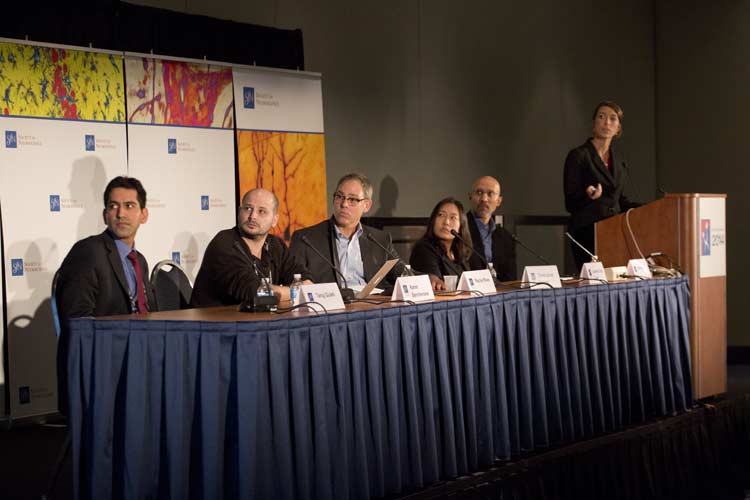
Neuronline Spotlight: A Closer Look at Academic Careers
A career in academia can offer many possible paths depending on the type of job responsibilities you seek and the work environment you want. Pinpointing the facets of academia that most interest you can help you decide which opportunities to pursue.
Explore the following three Neuronline resources to get a glimpse of what it’s like to work in different academic settings and learn practical advice on how to succeed in academia. Make sure to visit Neuronline for additional resources on academic careers and other professional development and scientific research topics.
Video Playlist: Success in Academia
Get inspired by leading neuroscientists who share candid personal stories and advice on wide-ranging topics to help you lead a meaningful academic career:
- Find out how to develop a diverse portfolio that lets you specialize and take risks.
- Learn techniques to improve your organizational skills so you can meet competing deadlines.
- Discover tips to effectively manage lab personnel and budgets.
Article: What to Expect When Teaching at a Liberal Arts School
Does the idea of working at a small liberal arts institution interest you? Shelly Dickinson, associate professor of psychology at St. Olaf College in Minnesota, shares her experiences:
- Teaching in collaborative settings where students work one-on-one with faculty and benefit from experiential and cross-disciplinary learning.
- Working with students who are interested in many subject areas and helping shape their ability to think critically.
- Realizing that small department sizes can affect areas such as staffing, research costs, and training
Video: Why Teaching Undergrads Is So Exciting
Mary Morrison, assistant professor at Lycoming College, discusses the opportunities, challenges, and methods to pursue teaching neuroscience to undergraduates:
- Students are eager to learn and not afraid to ask questions. Watching them develop as scientists is tremendously rewarding.
- Challenges exist with funding and building neuroscience-specific course offerings, but it is possible to turn these into positive opportunities.
- Trainees and established neuroscientists can prepare for this type of career path by getting involved in teaching, guest lecturing, and Brain Awareness Week, as well as cultivating mentor relationships.


















